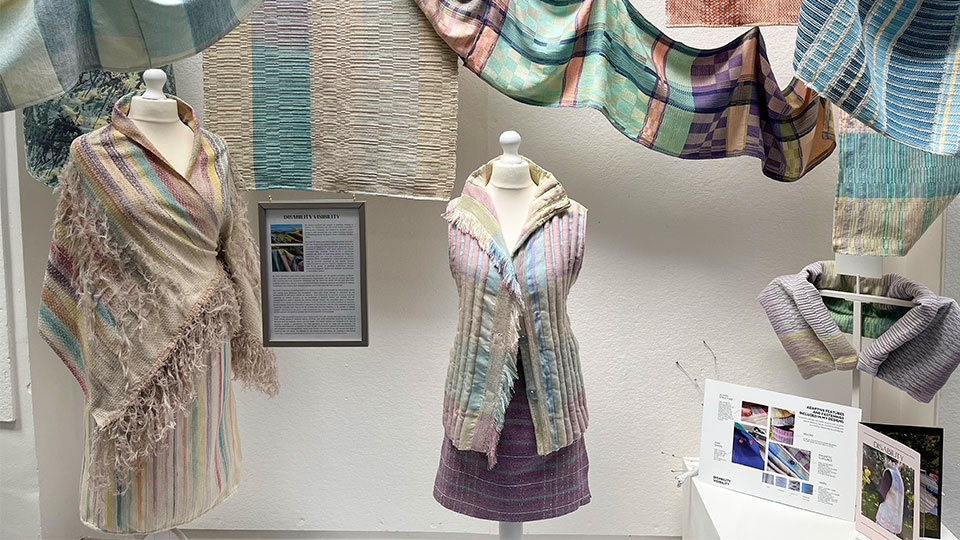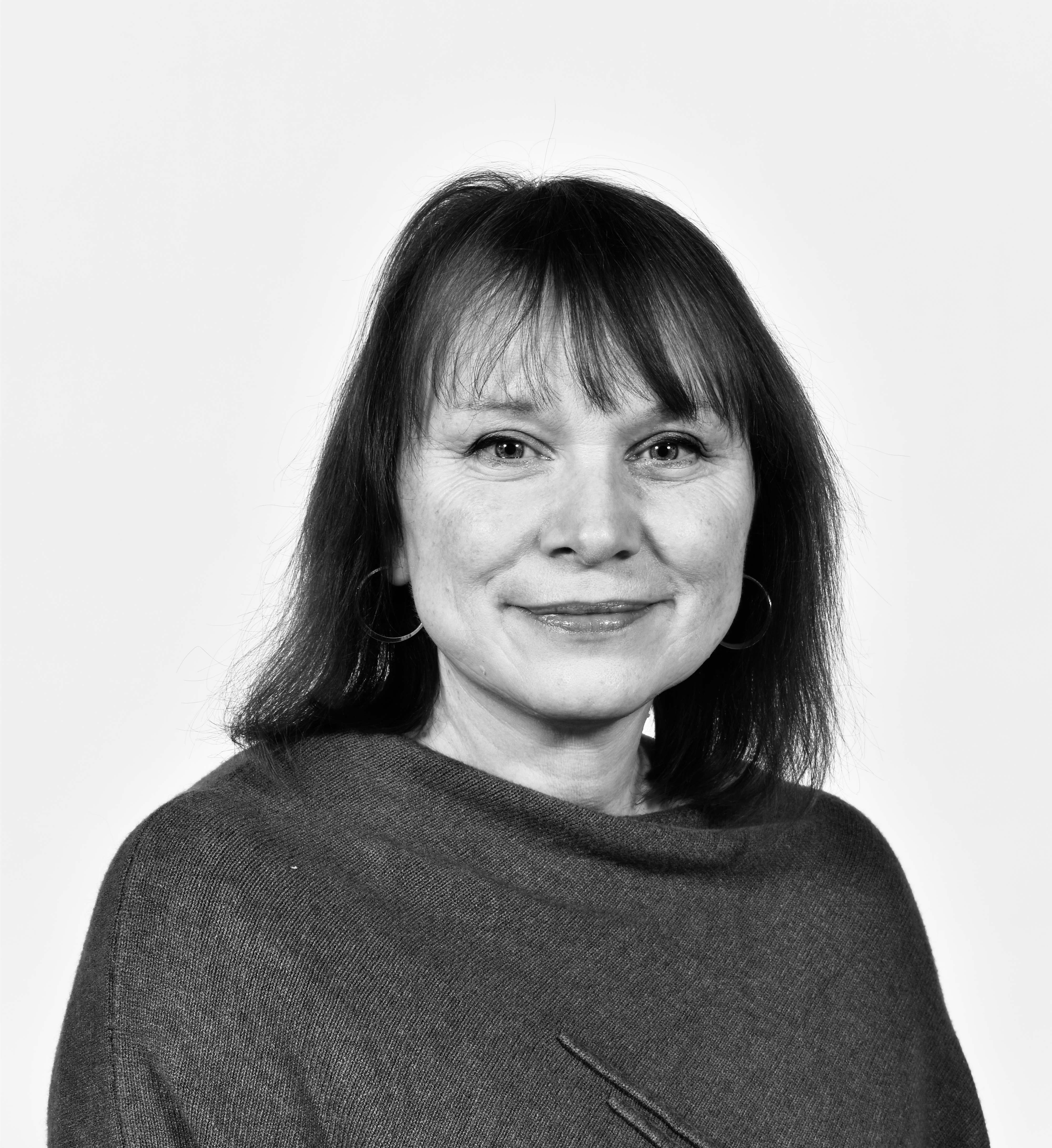The project was inspired by Kathryn’s close friend who was born with a genetic condition called Ehlers-Danlos Syndrome. Her friend told her that she, and many other Disabled people she knows, often like to use fashion to express themselves.
Using her friend as her muse, Kathryn built on this idea of expression and began to design items of clothing with a nature-inspired colour palette, as her friend loves spending time in woodlands.
Her creative process began by sketching and painting naturescapes as well as life drawn sketches of her friend to try and capture elements of her personality. She also interviewed her friend to find out her thoughts on the availability of adaptive fashion and whether she feels represented in fashion. Kathryn discovered that there is a great disparity in the usage of adaptive fastenings in clothing and the hiring of Disabled models by brands, in comparison to the number of Disabled people in the UK.
As a result of these conversations, Kathryn created double cloth woven structures that are durable and have the flexibility to be outerwear or relaxed daywear, depending on the yarns used. The cloth is also reversible and insulated. Functional, easy-to-use fastenings also feature in the designs with velcro, kam snaps and magnetic fasteners replacing buttons and zips.
The longest part of the process was setting up the looms as this involved warp winding yarn, dyeing it and threading it up the looms, which took about two weeks. The weaving itself took four weeks to complete and once off the looms, the cloth needed to be washed and then constructed into garments.
Kathryn said: “I wanted an inherent part of my project to promote constructive dialogue surrounding adaptive fashion and Disabled representation in mainstream fashion. I feel that the Degree Show gave me the physical and social platform to showcase my designs in this context.
“I wish to carry on with my studies at master’s level, and hopefully this will give me an opportunity to research elements that I can link to adaptive fashion and accessories in a handwoven form. For example, this may include sustainable yarns with hypoallergenic and/or thermal properties.”

